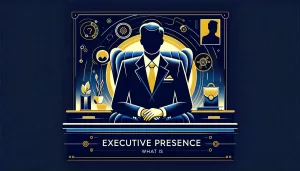If you are wondering, “What is a thought leader?” you are in the right place.
In this piece, we will go over the definition of a thought leader and some of the typical questions you might have about this topic.
At Latinpresarios, we specialize in positioning professionals as thought leaders in their niche.
We’ve worked with CEOs, executives, business owners, coaches, and consultants in different industries and have been able to position thought leadership pieces for them as top-ranked.
You will leave this article with a clear understanding of:
- What is a thought leader and
- The steps you’ll need to take if you want to become one
Contents
- 1 What does it mean to be a thought leader?
- 2 What is the goal of a thought leader?
- 3 Can anyone be a thought leader?
- 4 Do you need a PhD to be a thought leader?
- 5 Can anyone declare themselves as a thought leader?
- 6 What is the key to becoming a thought leader?
- 7 What is a thought leader and how do I become one?
What does it mean to be a thought leader?
Simply put, a thought leader is someone whose thoughts lead on a particular topic.
This can be achieved in many different ways.
For many years, Isaac Newton was the thought leader in physics. It can be said that, lantern on, Albert Einstein surpassed him as the top thought leader in the field.
Now, does it mean that you need to be the most intelligent and knowledgeable person on a certain topic to be a thought leader?
No!
A physics professor in college is a thought leader.
A physics teacher in high school is a though leader as well.
If someone is learning from you. If someone is going down a path of knowledge by following your thoughts and ideas, then you are a thought leader.
Here are the most important variables that must be present so that you can become a thought leader:
- You must share your thoughts and ideas on a particular topic
- Someone else needs to consume those thoughts and ideas and improve their thinking while doing so
It is as simple as that.
If those two things are happening consistently, then you are a thought leader.
What is the goal of a thought leader?
The goal of a thought leader is to transfer knowledge and ideas to someone about a particular field or area.
To improve someone’s life by giving them information, knowledge, ideas, or frameworks.
The way in which the goal is achieved will depend, in a large extent, to the audience of each thought leader.
A Ph.D. will transfer value by doing research and publishing papers. They can also do so by teaching a undergraduate or graduate programs.
A physics high-school teacher will transfer value by creating accessible and engaging (this is the ideal case) lessons to his students.
So, we can say that a secondary goal of a thought leader is to calibrate it’s knowledge transfer methods and optimized these to the level of knowledge of their particular audience (i.e., be super technical if your audience is other Ph.D.’s and be super engaging if your audience are not Ph.D.’s).
Can anyone be a thought leader?
Yes, but you can’t expect this to happen over time.
Remember, the two activities you must do to become a thought leader are:
- Share your thoughts and ideas on a particular topic
- Have others consume and get value from your thoughts and ideas
So, while it is true that anyone can be a thought leader, most don’t become thought leaders because they lack the discipline and consistency necessary.
You must share on a consistent basis to develop enough trust with an audience so that they consume and engage with your content.
Also, the level of effort will depend on the type of thought leadership that you want to build.
In some cases, you might need degrees and certifications, in others don’t. This will depend on the field and on your target audience.
Do you need a PhD to be a thought leader?
You will need a Ph.D. to become a thought leader if you want to be a thought leader amongst other Ph.Ds., people who want to become Ph.Ds., or technical people in a particular field.
In most other cases, you will not need a Ph.D. to become a thought leader.
Although the designation won’t hurt, in some cases, the same result of thought leadership can be achieved without going through a Ph.D. program.
Again, it will depend mostly on your audience.
A popular example of this is how Malcolm Gladwell has become a thought leader in certain areas without a Ph.D. (many Ph.Ds. have complained about these without realizing that Malcolm’s audience is very different from theirs).
Can anyone declare themselves as a thought leader?
While anyone can declare themselves as a thought leader, that doesn’t mean they are one.
Only when you have an audience that is consistently trusting you with their attention by consuming your thoughts and ideas is that you can consider yourself a thought leader.
Nowadays, with so many self-declared gurus, influencers, fake news, and fake followers, it might be difficult to identify true thought leaders.
A great filter is to pay attention to the people who are consuming and interacting with the content of the thought leader that you are investigating.
Also, you can check out the places where this thought leader has been featured.
And the level of engagement they are getting from their audience is another great variable to keep in mind.
What is the key to becoming a thought leader?
Here are some necessary elements so that you can become a thought leader:
- Share your thoughts and ideas consistently
- Do so with a particular audience member in mind
- Capture feedback and data to make sure you are having a positive impact in your audience
It is likely that, to some extent, you are already a thought leader.
If people in your company or peer group come to you for advice about a particular type of situation or topic, then you are a thought leader.
The key is to set a goal about the type of thought leader you want to be and create a plan to get there.
This includes assessing where you are in your thought leadership journey.
What is a thought leader and how do I become one?
Whenever you are ready to being your thought leadership journey, we are here to help you.
Check our free resources that will help you craft your personal branding statement, and also get started crafting your overall personal brand with our free template.
You can also book a call with me to brainstorm how to position yourself as the go-to thought leader in your niche.




